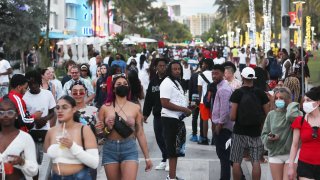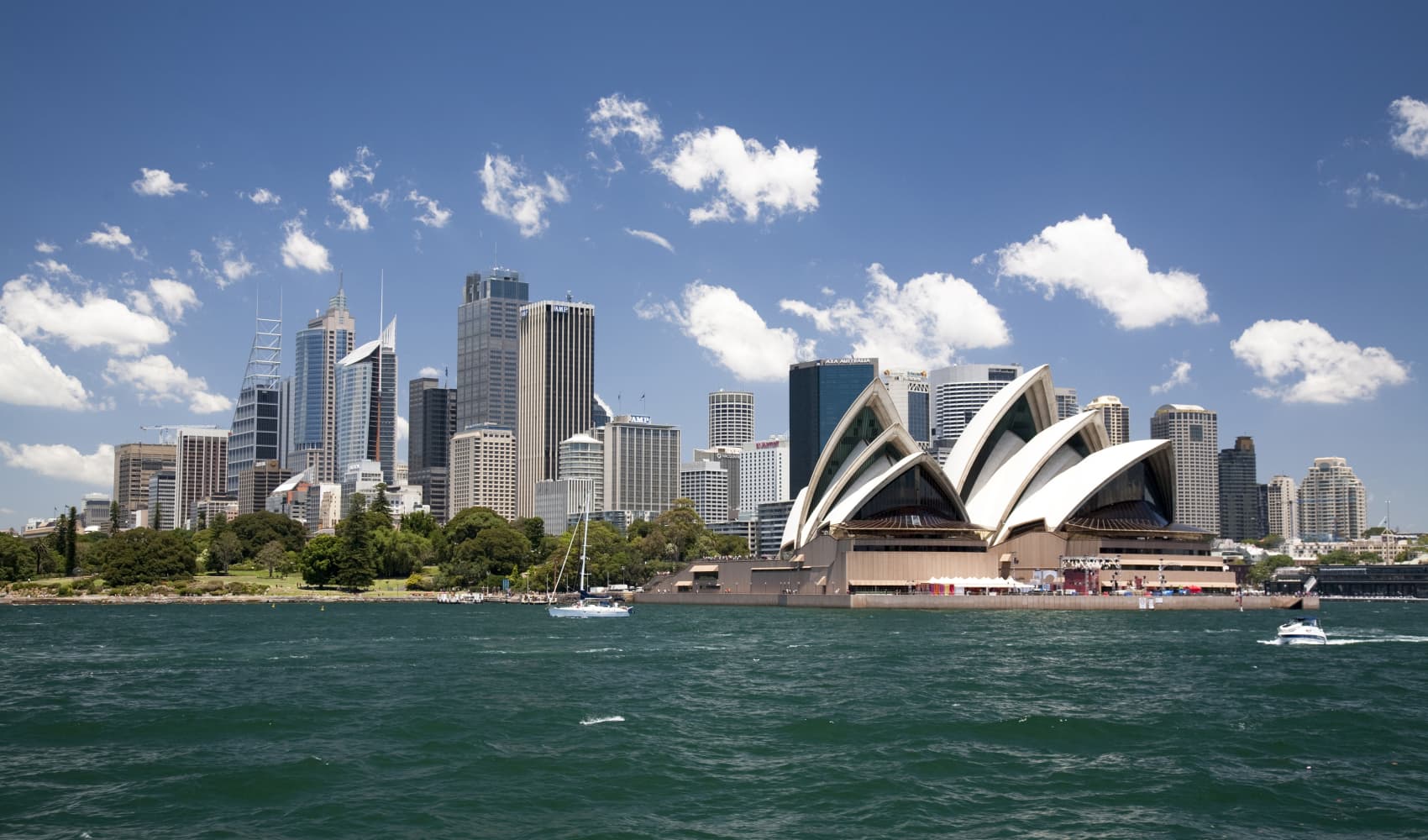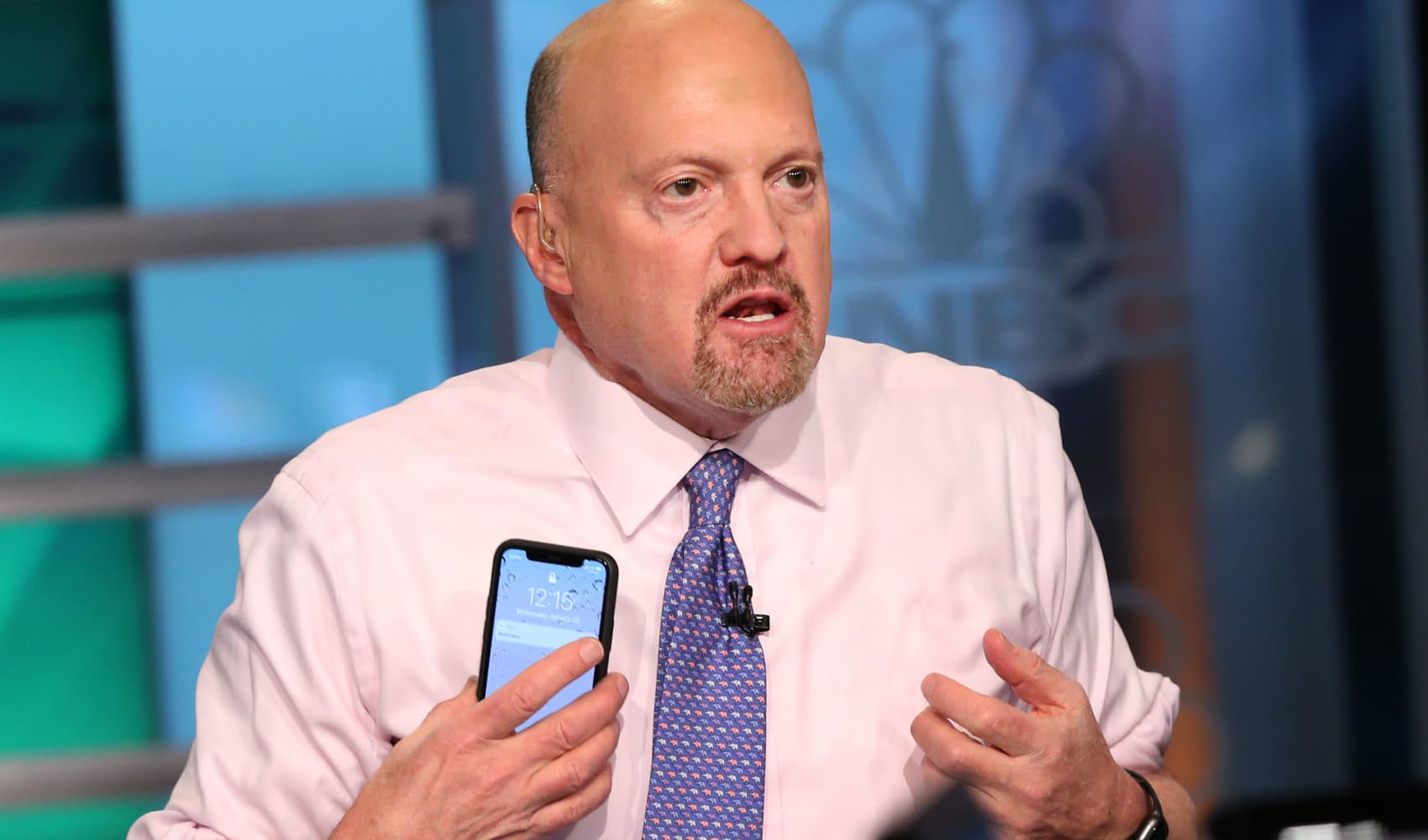
- Officials ordered an 8 p.m. curfew for Miami Beach, Florida, over the weekend to help control unruly behavior and largely maskless crowds.
- The new restrictions come as many businesses are trying to recover from a dismal pandemic year when many potential visitors stayed home.
- The CDC renewed its recommendation against travel.
The Centers for Disease Control and Prevention on Monday again advised against travel, while Miami Beach, Florida, business owners fretted about spring break chaos.
Miami Beach officials declared a state of emergency and ordered a rare curfew over the weekend, an effort to avoid spreading Covid-19 and stop large crowds and unruly behavior in the popular tourist destination.
Get top local stories in Philly delivered to you every morning. >Sign up for NBC Philadelphia's News Headlines newsletter.
Some businesses in the area, eager to recover from a brutal pandemic year that drove down tourist numbers, say they are being unfairly punished.
Police have arrested more than 1,000 people since Feb. 3, with 50 cited over the weekend, Miami Beach officials said. The 8 p.m. to 6 a.m. curfew could be extended for up to three weeks to try to control crowds, which could hit businesses during the key spring break season.
"Everything is knee-jerk," said Ashley Swanson, a bartender at Mac's Club Deuce Bar in South Beach. "They're blaming the wrong people. There's no reason why we shouldn't be open until midnight.
Money Report
"The problem is not with me, the problem is with [authorities] managing a crowd," he added.
Swanson said Mac's was closed from March through October because of Covid-19.
Florida, which hasn't shut down like many other states during the pandemic, has been a top destination for travelers over the past year but still suffered because of the pandemic. Miami Mayor Francis Suarez said Monday on MSNBC that the crowds of spring breakers are attracted to the city for a few reasons.
"It's been a very difficult mix of inexpensive flights, inexpensive hotels and being known as probably the most open place in the country," he said, adding that the crowds are causing some "very, very disturbing incidents in the beach."
The state received 86.7 million visitors last year, down 34% from 2019, according to an estimate from Visit Florida, the state's tourism agency.
"Curfews have been incredibly impactful for our business and it is highly disappointing given all the challenges we've faced over the last year," John Kunkel, founder and CEO of the 50 Eggs Hospitality Group, which has 11 restaurants including Yardbird Southern Table & Bar in Miami Beach, said in a written statement. "That said, the environment in Miami Beach is like nothing I have seen in 20 years of living here and is completely unacceptable. Something must be done to help us and all businesses in the area. It's devastating."
Demand for flights and hotel rooms has picked up lately, lifting fares and rates, a trend fueled by a rise in vaccinations and travelers eager to take trips after being cooped up for much of the last year.
The Transportation Security Administration screened more than 1 million people at U.S. airports in each of the last 11 days for the first time in more than a year. On Sunday, the TSA screened more than 1.5 million people, the most in more than a year but still down 30% from the 2.2 million people compared with the same day in 2019.
"People want to get out," said Bill Talbert, president and CEO of the Greater Miami Convention & Visitors Bureau. He said hotel occupancy in Miami-Dade County has risen to nearly 75% this month, though lodging is usually 80% booked at this time of year.
He called the chaos and subsequent curfews "unfortunate" but said the area will likely continue to draw visitors for conventions, cultural attractions and vacations.
"We're in paradise," he said.
Many colleges in the U.S. scaled back their spring breaks to prevent partying and new Covid infections. While Covid-19 cases have declined from the peak in January, the director of the Centers for Disease Control and Prevention, Dr. Rochelle Walensky, has warned infections could rise if people travel for spring break.
"Now is not the time to travel," she said at a news conference Monday.
"We are worried not just for what happens when you are on the airplane itself, but what happens when people travel, that is they go out, they mix, they mix with people who are not vaccinated," she said.






